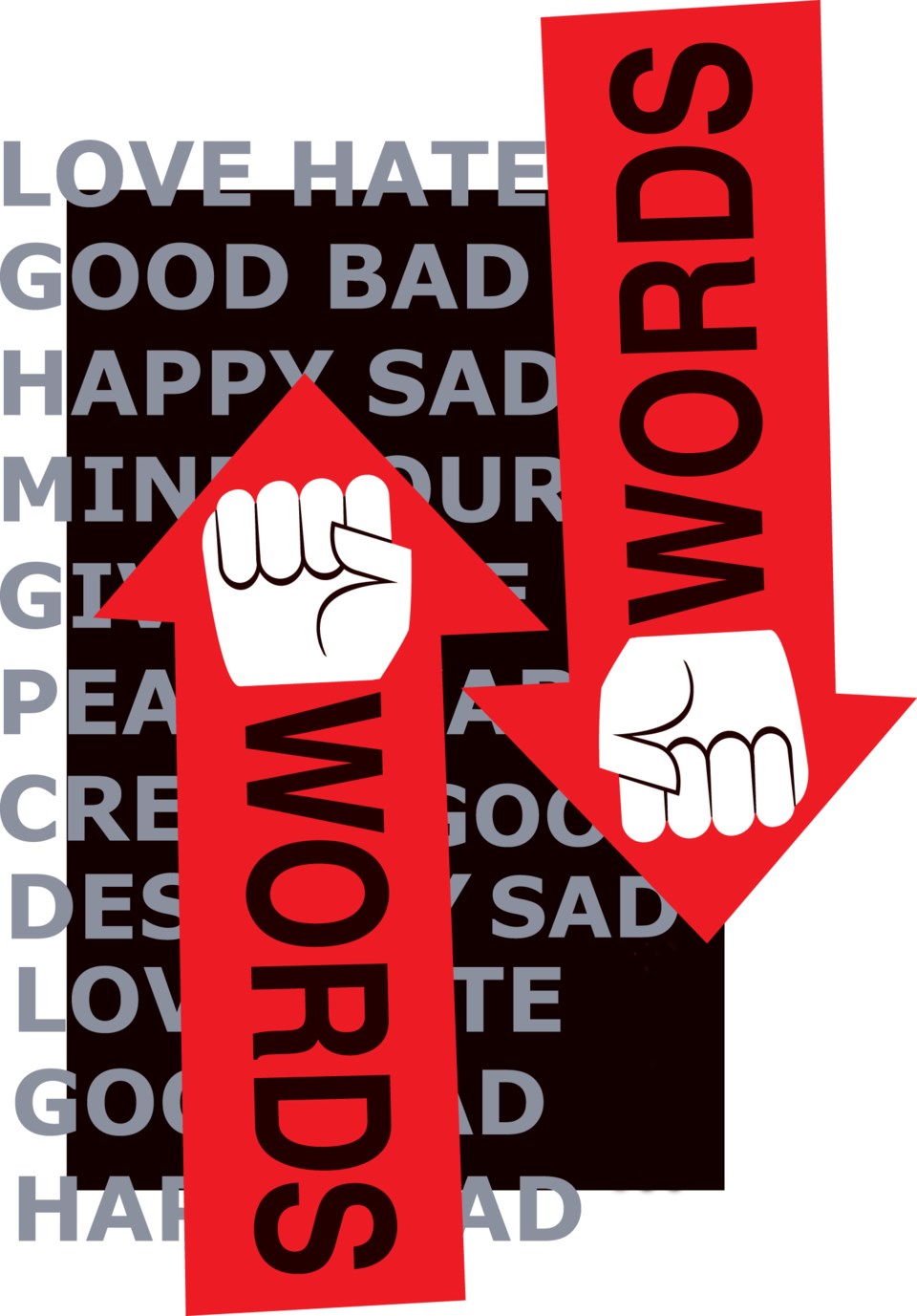So often, the idea for a column begins with a chance encounter, a snatch of overheard conversation. This is an example of that.
I was standing in line at the supermarket when a woman behind me, talking to a friend, said: “I don’t know what’s wrong with that gal. She’s obviously nuts. She’s sick in the head.”
Thankfully, I concluded my business before being forced to listen to the woman’s inevitable elaboration. Her statement made me angry; just the sheer ignorance appalled me. Then I began to think (always a dangerous thing) about her words and her right to utter them.
Who gets to decide what certain words mean?
Who owns words? Who, and not others, gets to use certain words?
Is language democratic?
You know where this is going. Let’s start at the top.
At its simplest level, the meaning of a word is the result of a collective agreement among its users. At one time, and for centuries, society agreed that a person who is happy and breezy could be safely said to be “gay.” But in this classic example, that word’s meaning has been changed through a process of appropriation and redefinition by a certain community. Similarly, the odious “N word,” which is a pure case of appropriation, is utterly off-limits to most folks.
Which brings me to “nuts” and the question of whether it is reasonable for members of the mental health/illness community to have a say in who is able to use that term, and how.
There are other words and descriptive terms to which this question applies. Crazy. Bonkers. Insane. Loopy. And the food words: bananas, nuts, crackers, etc.
The reason we are even talking about this is that ignorant, fearful and hateful people use these words in offensive ways. And this hurts. I know many people who would feel ashamed and embarrassed to witness the example that I led with, the plainly intolerant – or, at the very least, insensitive – utterances by the woman at the supermarket.
Other folks I know, members of the mental health/illness community, would be more proactive. “Hey! That’s my word, man. You can’t use it that way.”
So, where does this leave us? It is clearly presumptuous to assume intent when folks are insensitive with their word choices. However, it is quite acceptable to listen to folks like the woman in the food line and conclude that there is a major case of ignorance at work. And ignorance begets fear and, ultimately, stigma.
That understanding lets us skirt the issue of who “owns” certain expressions and avoid the thorny matter of either redefining or appropriation.
We are left with a third way, which is education.
This column has been running since 2012, and I can’t count the number of people who have said things like: “I did not know that. I hadn’t thought about mental health in that way. Now I understand.”
As gratifying as it is for a writer, such remarks are infinitely rewarding because they mean that at least one person stands a good chance of having an attitude adjustment with regard to mental health.
I’m good with what has happened to “gay” in the last decades, as I am with the strict appropriation of the “N word.”
But I’m happiest with enlightenment, so we don’t have to deal with who owns what.



